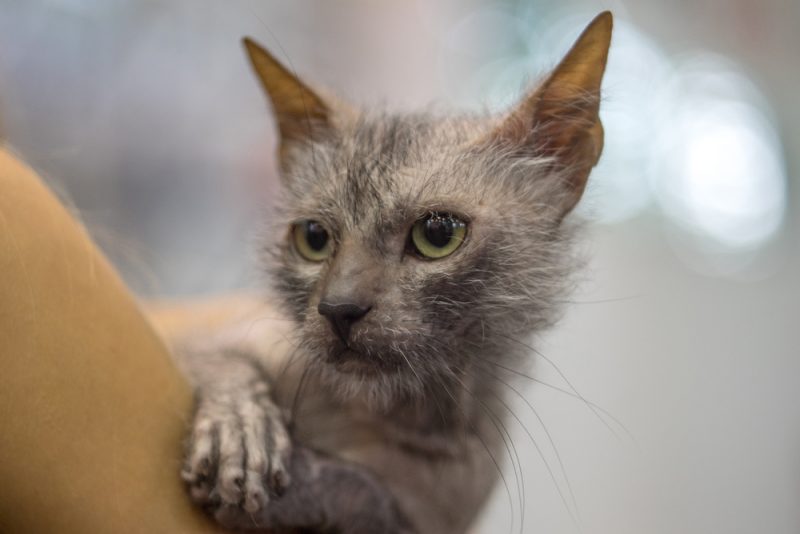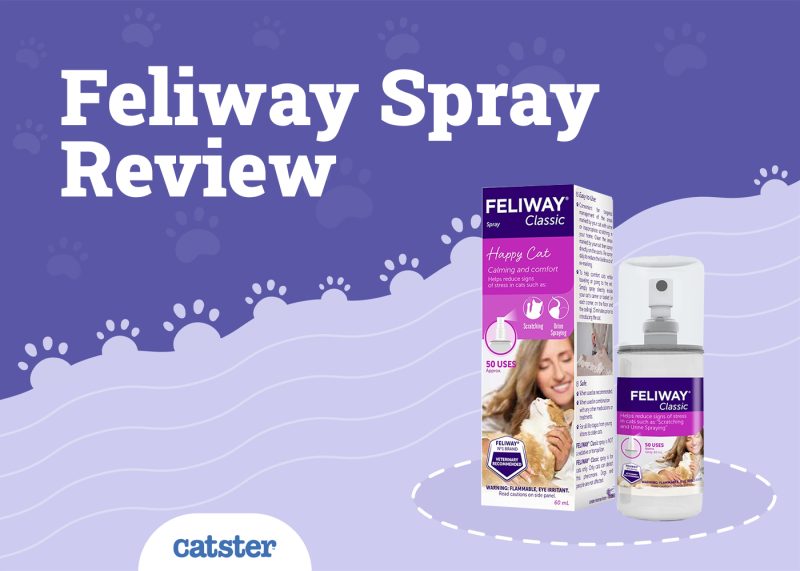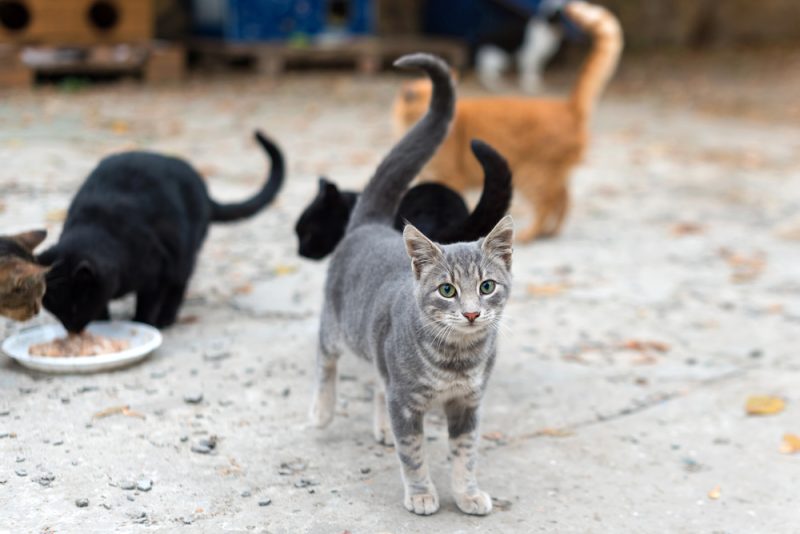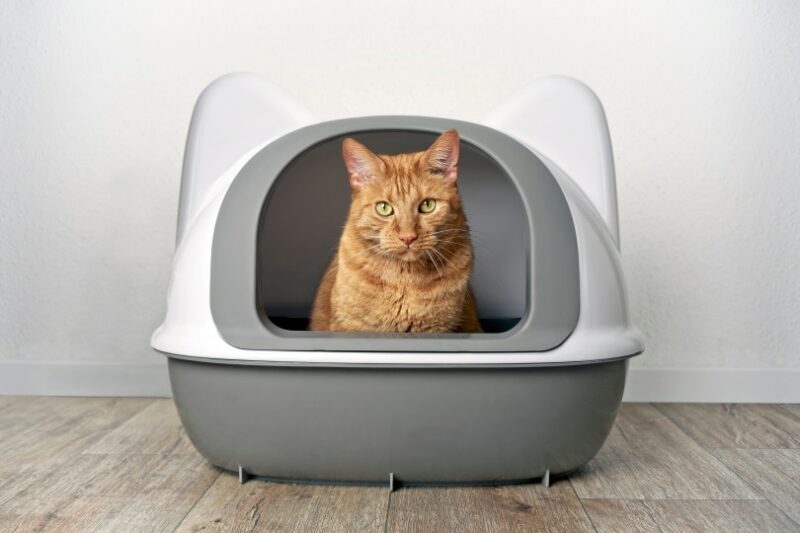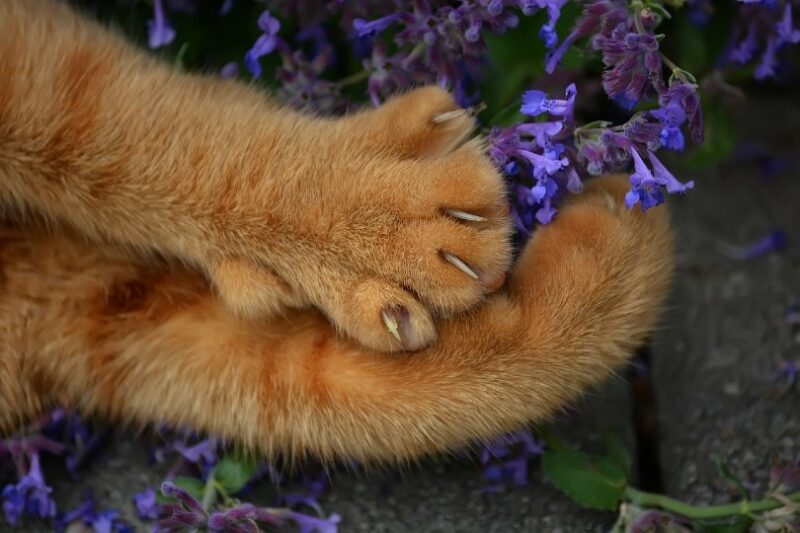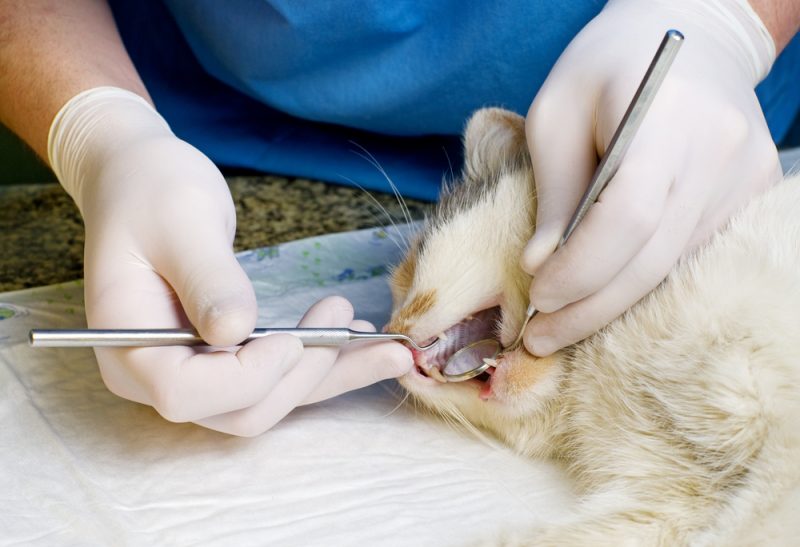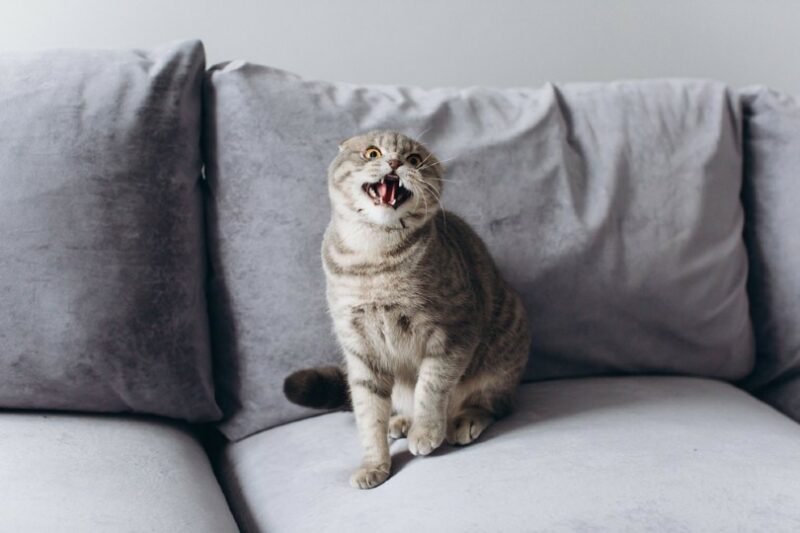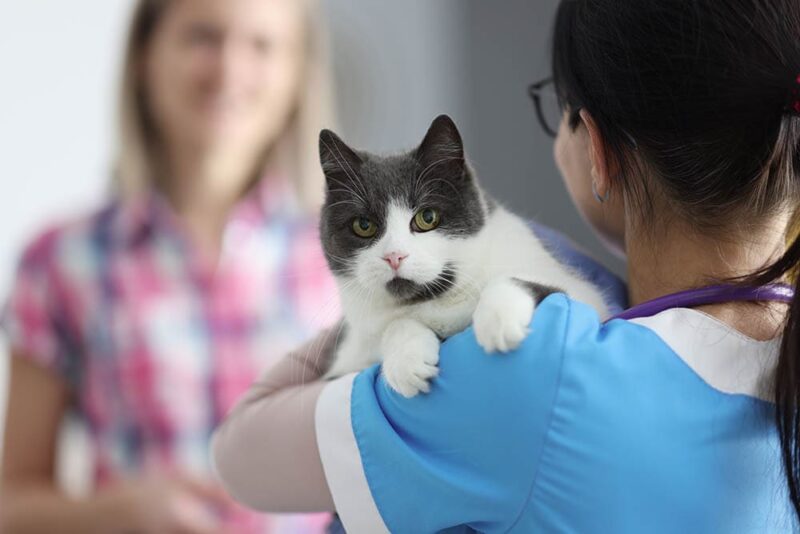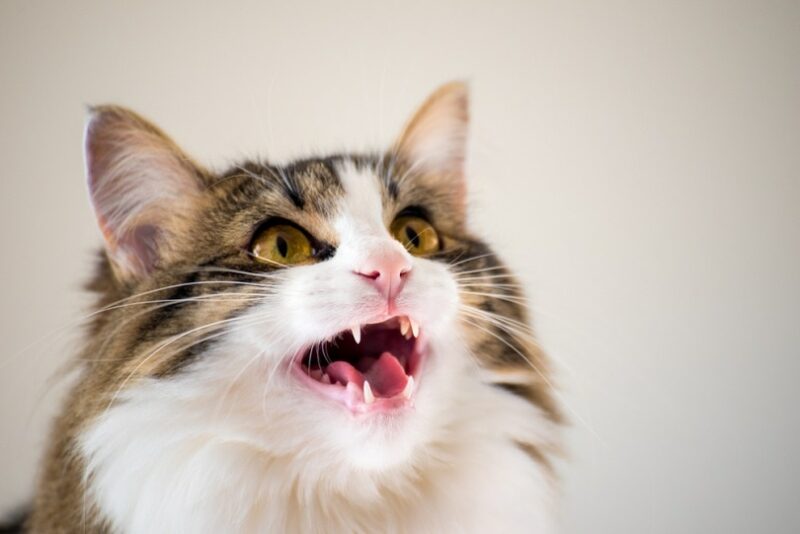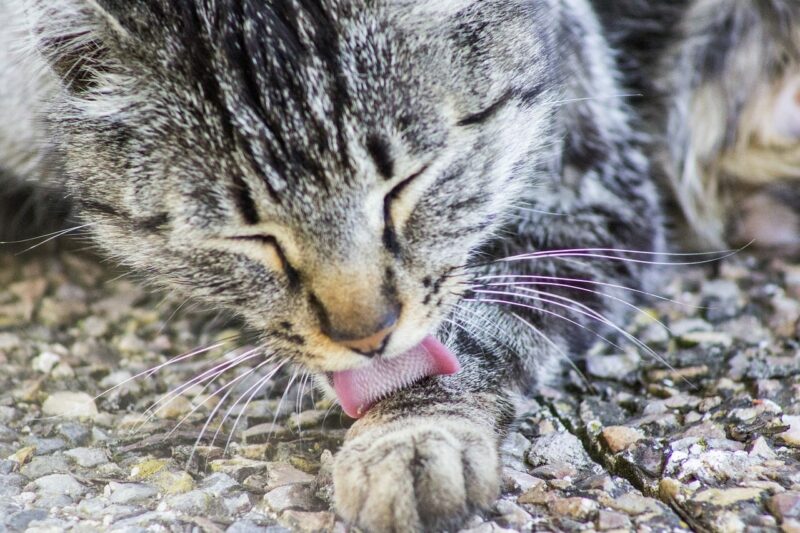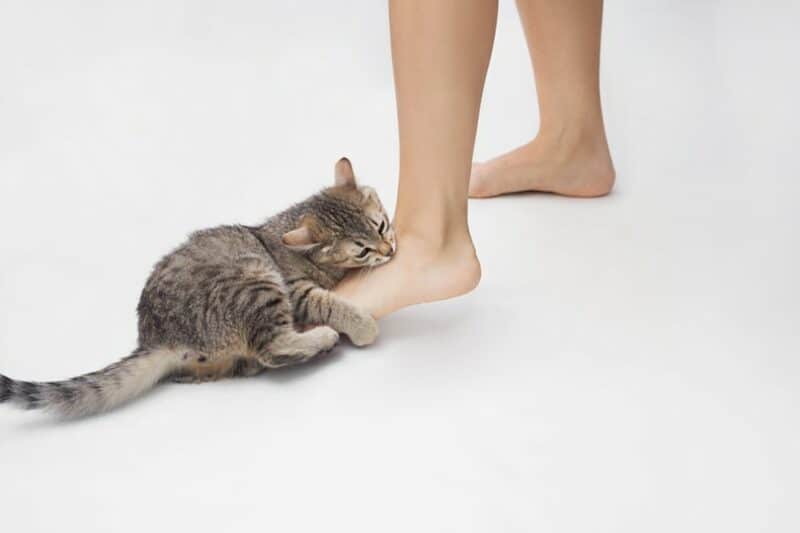Lykoi cats are absolutely unforgettable—they resemble sweet little werewolves thanks to their sparse coats and distinctive furless facial masks. Lykoi means “wolf” in Greek, and they’re also known as wolf cats or werewolf cats. The first Lykoi cats were identified around 2010, so the breed isn’t very old.
It was recognized by The International Cat Association (TICA) as a Championship breed in 2017. Lykoi cats often weigh between 8 and 13 pounds, and they come in several shades, but black is the most popular. Some have pointing and shading, and cats with bits of white in their fur often appear silver. Most have patches of hair, but some are hairless. Lykoi cats presumably live for 10 to 15 years, the same as most other cat breeds. They’re affectionate and charming and generally get along quite well with other pets and children.
Keep reading for seven incredible Lykoi cat facts.

The 7 Lykoi Cat Facts
1. They’re Not Hypoallergenic
While there’s technically no such thing as a hypoallergenic cat, some breeds shed less, and as a result, leave lesser amounts of allergens often responsible for triggering allergic reactions in humans. However, fur is not the culprit when it comes to cat allergies. Most people are in fact allergic to one of several proteins cats naturally produce, the most common of these being fel d1. This is primarily found in a cat’s saliva and is deposited all over their body whenever a cat grooms themselves. Because of their lack of fur, Lykoi cats resemble Sphynx kitties, but they still produce the triggering proteins and shed a bit more than most cats. It is important to note that even if a cat doesn’t shed, they release the dried allergen in the air as dander anytime they walk, shake, move, stretch, etc.
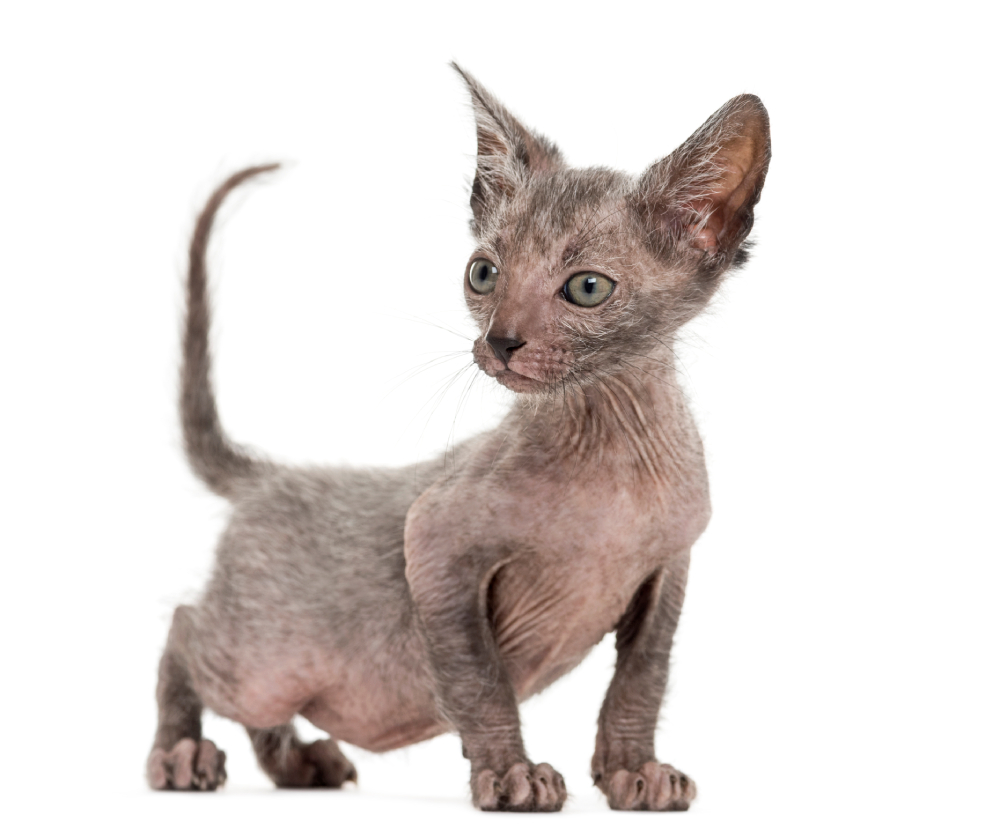
2. A Genetic Mutation Causes the Appearance
A genetic mutation is responsible for giving Lykoi cats their distinctive looks. It’s a recessive gene, meaning two cats with normal coats can have a werewolf kitten if both parents are heterozygous and each carries a copy of the recessive trait. The first “natural” Lykoi cat was discovered in 2010 in a feral cat colony.
Two feral Lykoi cats were mated to create the breed, and the trait still appears in feral colonies worldwide.
3. They Do Best Indoors
Because most Lykoi cats have either sparse or no fur, they should be kept indoors. The sun can quickly burn Lykoi cats during the spring and summer, and most don’t have enough hair to keep themselves warm when temperatures drop during the fall and winter.
They can even get chilly when hanging out inside, and indoor Lykois often enjoy cozying up in heated cat beds. Some Lykoi owners dress their pets in sweaters and shirts to keep them warm.
4. They’re Not Related to Sphynx Cats
While Lykoi cats are often hairless, they’re unrelated to Sphynx cats. The hairless trait in Sphynx cats stems from a genetic mutation discovered in the 1960s. They have stunningly large eyes and ears. Sphynx cats are often considered good choices for individuals with allergies, but they still produce the protein responsible for triggering most allergies to cats.
The Sphynx was recognized by the CFA in 2005, despite being bred long before that.
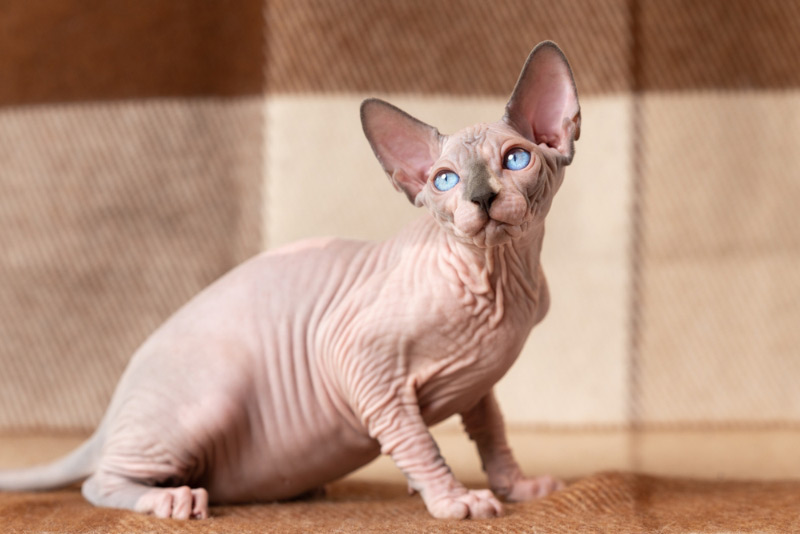
5. They Reportedly Have Some Feral Characteristics
Because these cats were bred from feral kitties, they anecdotally often have a few distinctive personality quirks. Most have high prey drives, meaning they love to play, chase, bat, and pounce! They’ve been bred to enjoy human companionship and are happy to be around people.
Many are slow to warm up to strangers but generally become accepting of new people relatively quickly.
6. They Shed and Grow Back Hair
Lykoi cats often go through cycles when it comes to their coats. Most go through regular shedding periods a few times each year—much like dogs. Some lose their coats entirely, and others keep a few bits of fur here and there, leading to a shaggy appearance. They then regrow their hair, and the cycle continues.
Fur loss in cats is often associated with skin conditions, but it’s a normal process in Lykoi cats. Kittens are often born with full coats.
7. They Have High Grooming Needs
Lykioi cats require a bit more in the grooming department than the average short-haired domestic cat because they shed their entire coats more frequently. Most lack undercoats, which contributes to the patchy look of their fur. They also require regular brushing and combing to prevent tangles.
Regular bathing keeps their skin from becoming overloaded with dirt and oil, and is recommended for this breed.
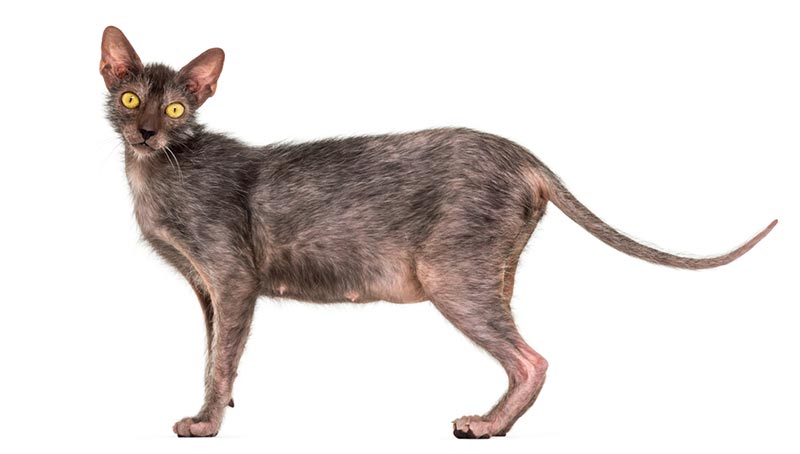

Conclusion
Lykoi cats make excellent pets. They’re intelligent, affectionate, gentle, and typically quite playful. They look like little werewolf cats, thanks to their fur coats. They haven’t been around for very long, so breeders and veterinarians are still learning if they’re prone to developing any breed-specific health conditions.
The first Lykoi cat was found in 2010, and TICA recognized the breed as a Championship breed in 2017. Because of their relatively high prey drives, Lykoi cats are best for families who don’t own small pets, like gerbils and Guinea pigs.
Featured Image Credit: Jaroslaw Kurek, Shutterstock
